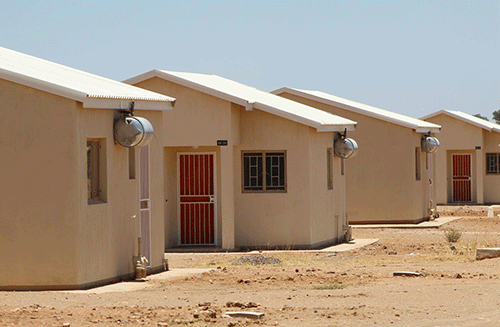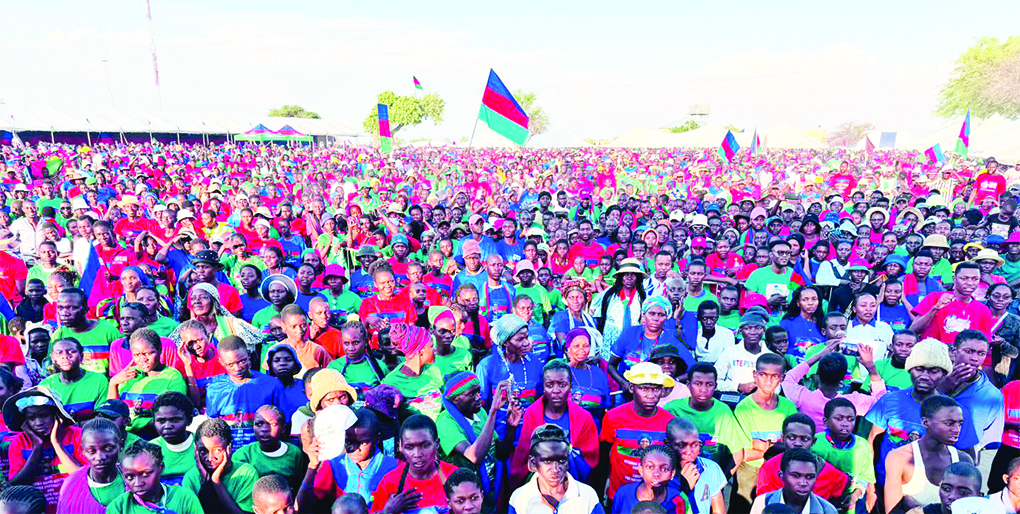I DIDN’T make the long trek to Omugulu-gwoombashe for the celebration of Heroes’ Day on August 26. But I got the opportunity to follow proceedings on our national broadcaster, NBC. I must admit that the content and tone provided enough fodder for debate and analysis.
The celebrations did not only reveal our narrative as victors (after all it should), but importantly it did highlight in more than subtle ways the fault lines that exist between generations within Swapo. As such, this was not merely the narrative of the victors, but it was in more ways than one the narrative of a certain generation and their role in the liberation struggle. I hasten to add that the forefathers of the liberation struggle against colonialism were mentioned as an anecdote to reinforce the dominant narrative. Therefore, Namibians of my generation who observed and participated in the student protests of the 1980s would have felt as if the organised students and workers movement did not mark any meaningful turning point in the liberation of the country. I did not hear of Ben Ulenga, Ignatius Shixwameni (irrespective of their ‘defection’), Uhuru Dempers and more so the resolve and bravery of Joseph Axab Hendricks in the face of the brutal apartheid regime. I am not too sure if this narrative is an accidental omission on the part of the narrators, principally the Tanga and Napundwe generations and broadly speaking, the exiles – or if it is a deliberate attempt to tell the Namibian story through their own experience.I could possibly be over-analysing the content and tone of the Tanga and Napundwe generation at what appeared to have been their last roll of the dice. After all, there is no homogeneity in terms of how they view the narrative, even if there are obvious points of convergence. But what is true is that the mortality of the Tanga generation compels them to tell this story as the dominant narrative, not only to highlight a particular vision of Swapo, but also to say that if they don’t insist on that refinement, many things may be lost forever. In the main, how this story was told at Omugulu-gwoombashe appeared to the curious observer more like a pointer about the respect that many ought to have for the Tanga generation. In fact there was particular mutual insistence on the part of the founding President and the incumbent that the liberation narrative must be told to the youth. But that Swapo has been going through a mutation over the past few years is stating the obvious. In short, Tanga has been evaporating. And the forthcoming Electoral College is likely to be a cataclysmic shift with regard to the transformation of the party. I am not too sure if this transformation is one of ideas or just new faces that will ensure a certain degree of continuity and the survival of the party. Perhaps it is also a concern with the kind of narrative that they may want to tell when they reach their later years. What is certain on that score is that the impatience of the youth is also borne out of the desire to craft an alternative vision for the Party and ultimately the country. While I have major points of discord with the manner in which the youth in the Party articulates itself on a host of issues, their resolve to renew the arsenal of the Party ought to enjoy the support of the serious analyst. It is in the normal order of things to renew human arsenal and ideas. It is this concrete fact that Tanga ought to internalise and not seek to squeeze and suffocate the political space in the Party. Therefore, I would have expected that a horde of senior Swapo leaders would have taken the graceful decision to announce, just as Ngarikutuke Tjiriange elegantly did earlier during the week, that they would not be available for the parliamentary list. It will be pitiful for senior leaders to be pushed out of politics because they could not garner enough votes at the Electoral College. Leaders who have served the Party and the country with distinction ought to know when to quit and not wait until events take control of their destiny. What ought to be accentuated is the fact that a particular generation won’t be able to own different narratives. Many ought to have left with the founding President. But they chose to linger on. It will be sad and politically inelegant if the Tanga group is compelled to leave through the ballot at an Electoral College. It will be the humiliation of Tanga.* Alfredo Tjiurimo Hengari is a Ph.D fellow at the University of Paris-Pantheon-Sorbonne, Paris.
Stay informed with The Namibian – your source for credible journalism. Get in-depth reporting and opinions for
only N$85 a month. Invest in journalism, invest in democracy –
Subscribe Now!










